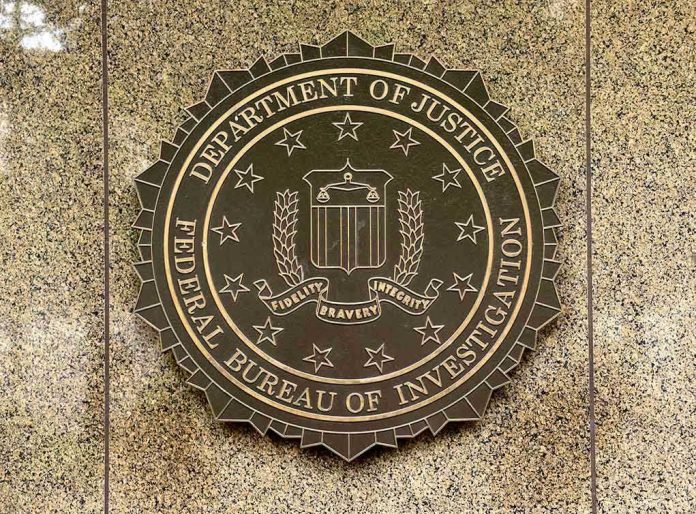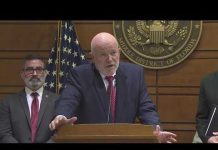
Senator Cory Booker’s explosive outburst against FBI Director Kash Patel in a Senate hearing lays bare the deep partisan rifts threatening the integrity of federal law enforcement and the trust of millions of Americans.
Story Snapshot
- Sen. Cory Booker (D-NJ) clashed with Trump-appointed FBI Director Kash Patel, accusing him of undermining the bureau’s independence.
- The confrontation escalated into a shouting match, breaking Senate decorum and drawing nationwide media attention.
- Booker alleged Patel’s loyalty to former President Trump led to retaliatory firings and compromised national security.
- The controversy intensifies scrutiny of the FBI and raises concerns about political influence, agency morale, and public trust.
Senate Hearing Erupts as Booker Confronts Patel
On September 16, 2025, a Senate Judiciary Committee hearing devolved into chaos as Senator Cory Booker launched a blistering attack on FBI Director Kash Patel. Booker accused Patel of making the country “weaker and less safe,” citing alleged purges of experienced FBI officials and prioritization of former President Trump’s agenda over the Constitution. The heated exchange escalated quickly, with both men raising their voices and talking over each other, forcing the committee chair to intervene and restore order. Booker ultimately stormed out after his questioning ended, leaving a charged atmosphere in his wake.
The confrontation drew immediate and widespread attention across national media outlets and social platforms, with video clips circulating rapidly. Media coverage spotlighted the rare public breakdown of Senate oversight decorum, emphasizing the highly partisan undertones of the clash. Booker’s accusations centered on Patel’s recent firings of high-ranking FBI officials, which he framed as politically motivated retribution. Patel, in turn, rejected these allegations and accused Booker of spreading misinformation as tensions boiled over in the hearing room.
Backdrop of Polarization and Partisan Allegations
This explosive incident did not occur in a vacuum. The FBI, historically expected to operate independently from politics, has faced growing scrutiny since Trump’s return to the presidency and Patel’s controversial appointment as director. Patel—a former Trump administration official with limited traditional law enforcement experience—has been criticized for his perceived loyalty to Trump and for actions that opponents claim politicize the bureau. Democrats and some Republicans have raised alarms about the recent firings of senior FBI officials, which are now the subject of an ongoing lawsuit that alleges a “campaign of retribution” against those involved in politically sensitive investigations.
The hearing’s context is defined by extreme political polarization, with both parties using the FBI’s leadership as a battleground. While Democrats demand accountability and nonpartisan law enforcement, Republicans defend Patel’s leadership and decry what they see as Democratic grandstanding. The Senate Judiciary Committee, chaired by Republican Sen. Chuck Grassley, struggled to maintain order as the confrontation unfolded, underscoring the mounting strain on institutional norms and oversight procedures.
Implications for the FBI, Public Trust, and Political Climate
The fallout from the Booker-Patel clash has immediate and far-reaching consequences. In the short term, the public shouting match deepens partisan divides and erodes confidence in the FBI’s impartiality—a critical concern for law enforcement effectiveness. The ongoing lawsuit by former FBI officials keeps the issue in headlines, increasing pressure on Patel and the Trump administration. For agency employees, morale and career stability are at risk as leadership turmoil and accusations of politicization persist. Across the political spectrum, both Democrats and Republicans are leveraging the controversy to rally their respective bases, while the general public faces rising skepticism toward federal law enforcement.
Long-term risks loom as well. Repeated political clashes threaten to damage the FBI’s reputation as a nonpartisan institution and may set a precedent for more confrontational oversight hearings. High turnover and instability at the bureau could discourage talented professionals from serving, potentially weakening the agency’s capacity to uphold the law impartially. The episode also amplifies debates about the Senate’s oversight responsibilities and the balance of power between government branches, with implications for other federal agencies facing similar politicization pressures.
Expert and Stakeholder Perspectives
Legal and political experts have characterized the Booker-Patel exchange as an unusually public display of partisan tension, highlighting potential legal ramifications for the bureau’s leadership. Former law enforcement officials warn that ongoing politicization undermines morale and operational effectiveness at the FBI. While Democrats emphasize the need for robust, nonpartisan oversight, Republicans argue that the confrontation reflects partisan theatrics aimed at undermining a Trump-appointed director. Neutral observers focus on the urgent need to restore decorum and public trust in federal oversight. All major media outlets agree on the factual sequence of events and the significance of the breakdown in Senate decorum, though editorial perspectives may vary.
The situation remains unresolved as Patel continues in his role amid mounting legal and political scrutiny. The Booker-Patel hearing stands as a stark warning of the growing challenges facing American institutions, with the FBI and its oversight process at the center of the nation’s polarized political landscape.
Sources:
Cory Booker erupts at Patel, predicts he’s ‘not long’ for his job
Kash Patel hearing: Booker, Grassley, Charlie Kirk




